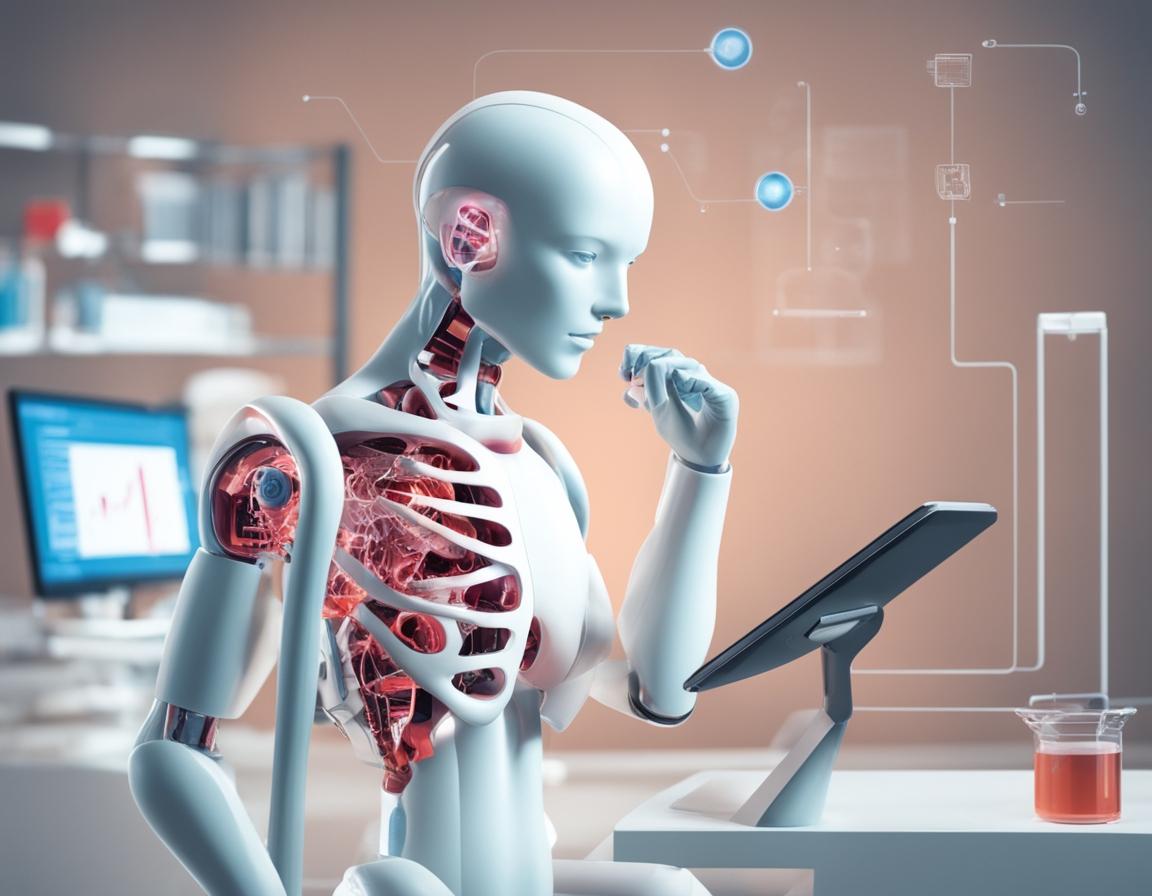
The Rise of AI Doctors: Can Virtual Assistants Replace Human Consultations?
The integration of artificial intelligence (AI) into healthcare has accelerated rapidly, giving birth to a new era where virtual assistants and AI-driven tools participate actively in patient care. As 2025 advances, AI "doctors" are no longer science fiction but real technological solutions assisting in diagnosis, treatment recommendations, patient monitoring, and even preliminary consultations.
This blog explores the growing role of AI doctors, how virtual assistants function in clinical settings, their advantages and limitations, and whether they can truly replace human consultations.
What Are AI Doctors and Virtual Health Assistants?
AI doctors are complex algorithms and software systems designed to perform tasks traditionally handled by human physicians. They analyze medical data, provide diagnostic suggestions, recommend treatments, and support decision-making processes.
Virtual health assistants are consumer-facing AI applications that engage patients through chatbots, voice interfaces, and mobile apps to provide symptom checking, appointment scheduling, medication reminders, and health education.
Examples include AI-driven diagnostic platforms like IBM Watson Health, Babylon Health, and AI chatbots integrated into electronic health record (EHR) systems.
How AI Doctors Enhance Healthcare Today
1. Diagnostic Support
AI algorithms analyze imaging, lab results, and patient history to identify patterns indicative of diseases such as cancer, cardiovascular conditions, skin disorders, and more. This improves early detection and diagnostic accuracy.
2. Personalized Treatment Planning
AI synthesizes large datasets, including genomics and clinical guidelines, tailoring treatments specific to individual patient profiles.
3. Remote Patient Monitoring
Virtual assistants track vital signs and symptoms in chronic disease patients, alerting clinicians to changes needing intervention, enhancing outcomes while reducing hospital visits.
4. Administrative Efficiency
AI automates documentation, billing, and patient triage, allowing physicians to focus on complex clinical care rather than time-consuming clerical tasks.
Can AI Doctors Replace Human Doctors?
Arguments Supporting AI
-
Scalability: AI can handle large volumes of patient data and consultations simultaneously, addressing clinician shortages worldwide.
-
Consistency: AI provides evidence-based guidance consistently without fatigue or bias inherent to humans.
-
Accessibility: AI-powered telemedicine can reach underserved regions, overcoming geographic and socioeconomic barriers.
-
Cost-Effectiveness: Automation reduces healthcare costs by streamlining workflows and minimizing unnecessary testing.
Limitations and Challenges
-
Emotional Intelligence Gaps: AI lacks human empathy, nuance, and interpersonal skills critical for patient trust, reassurance, and psychosocial care.
-
Complex Decision-Making: AI may struggle with ambiguous cases requiring holistic judgment, ethical considerations, or multidimensional reasoning.
-
Data Privacy and Security: Ensuring patient data confidentiality is paramount and challenging with widespread digital use.
-
Algorithm Bias: Training data may embed biases undermining equitable care.
-
Regulatory and Liability Issues: Legal frameworks are evolving to define AI’s role and responsibility in medical decisions.
The Future of Hybrid AI-Human Collaboration
Instead of replacing physicians, AI doctors are best viewed as augmenters—tools that enhance clinician capabilities. Hybrid models where AI handles data analysis and routine queries while human doctors provide nuanced interpretation, ethical judgment, and empathetic care are gaining traction.
Emerging workflows incorporate AI pre-screening, risk stratification, and personalized decision support, enabling physicians to deliver more precise, efficient, and patient-centered care.
Patient Acceptance and Ethical Considerations
2025 surveys show growing patient comfort with AI in initial consultations and symptom checking, provided human clinician involvement is ensured for serious or complex conditions.
Ethical guidelines stress transparency, informed consent, and preserving the patient-doctor relationship while harnessing AI’s strengths.
Conclusion
The rise of AI doctors and virtual health assistants is transforming healthcare by enhancing diagnostic precision, accessibility, and efficiency. While AI excels in data-driven tasks, it cannot yet replicate the empathy, ethical reasoning, and holistic judgment of human clinicians.
In 2025 and beyond, the most effective healthcare models combine the strengths of AI and human doctors, delivering care that is both scientifically advanced and deeply compassionate. Embracing this collaboration holds the key to the future of medical consultations that benefit patients worldwide.










